Is it Ethical to be a Travel Writer?
Yes? No? Maybe.
For the audio version of this article, read by one of the authors, go here.
We’re currently in Fethiye, Turkey, where we recently went for a walk one evening.
The sun dipped behind the hills, golden light spilling across the sky and water. A cat lounged on the seaside promenade as if posing for a painting.
“Our readers are going to love hearing about this place,” Michael said.
But as soon as he’d said the words, we remembered all the places we’ve seen lately that are, frankly, kind of ruined by too many tourists: Puerto Vallarta, Dubrovnik, and Barcelona, to name just three.
By writing about Fethiye, would we be helping to ruin it too?
Bigger picture: in 2024, is it even ethical to be a travel writer?
Travel is amazing. It broadens the mind and brings cultures together.
But tourism is also currently hitting record highs, undeniably causing some very serious problems:
It’s bad for the environment.
Too many tourists — that is, overtourism — can ruin whatever made a place special in the first place.
And it can have negative impacts on local communities.
All of these problems are real, and they desperately cry out for local, national, and — probably — international regulation.
And any regulations that do exist are often thwarted by simple human greed.
At the same time, the negative impacts of travel are only part of the story. Sometimes tourism has — dare we say it? — a positive impact too, even on local communities. We have seen this with our own eyes, over and over again.
In Cambodia last year, we stopped at a small village to watch a local family making rice noodles which they sold to their neighbors. There were no modern machines; everything was done by hand in an incredibly primitive and very labor-intensive fashion — all for a few dollars a day.
One member of the family, 17-year-old boy, told us (via a translator) how much he regretted dropping out of school several years earlier.
“I quit school to be a rice farmer like my father,” he said. “But now that more tourists are coming here, I know there are other jobs I could do if I spoke English.” He glanced at his infant daughter nearby. “I’m going to make sure my daughter stays in school. She won’t work in a rice field or only make rice noodles every day. She will get an education and learn to speak English. She will have a better life.”
On one hand, it’s sad that traditional ways of life are passing away. On the other hand, we’ve now seen these “traditional ways of life” up close many times — and witnessed how difficult they can be.
No matter how hard these people work, the result is almost always some degree of extreme poverty. During Covid, many Cambodian families survived by eating insects.
For decades now, poverty has dramatically plummeted all over the world — and, yes, tourism is part of the reason why.
Cambodia is an interesting case study because it has only recently started to realize its tourist potential. Meanwhile, right next door, Thailand embraced mass tourism back in the 1970s — and it now has a vibrant and growing middle class. Poverty has fallen from 60% in the 1980s to 7% today.
All Southeast Asian countries that embraced tourism years ago now have strong, growing economies — and the ones that have only done so recently don’t.
Thailand still has many problems — some of which are directly caused by tourism. But to be very blunt, many fewer people are starving in Thailand than in Cambodia. And the standard of living is much higher.
Here’s another blunt way to put it: poor, non-Westerners want the comforts of the modern world too — running water, hot showers, toilets, safe water to drink, plentiful and varied food, and access to information and the media. And participating in the modern economy is currently the only real way to get these things.
Some things are lost when these changes happen, absolutely, but there are very real things to be gained. Romanticizing these people and their “authentic” lifestyles doesn’t help them.
Anyway, shouldn’t local people be able to decide these things for themselves?
When it comes to the impacts of tourism on communities, another interesting comparison is the neighboring countries of Croatia and Bosnia and Herzegovina (one country with two names — referred to as “Bosnia” from here on out).
Both Croatia and Bosnia are of similar geographic size and population, and until 1991, both were part of the former Yugoslavia.
But since the break-up of that communist country, Croatia and Bosnia have gone in very different directions — and tourism has played a big part in those directions.
In 2023, just 1.1 million people visited Bosnia — which is 400,000 fewer than the number of people who visited just Dubrovnik, Croatia, that same year.
As a result, tourism now accounts for less than 5% of Bosnia’s GDP, which is $25 billion, and the average Bosnian’s income and standard of living lag far behind Croatia.
It’s true that Bosnia doesn’t have Croatia’s spectacular coastline, but Slovenia — another part of the former Yugoslavia — also has almost no coast and is much smaller in area and population than Bosnia. Yet their GDP is $65 billion, and in 2021, almost five million people visited. That’s created more than 90,000 jobs, making tourism 10% of Slovenia’s rising GDP.
Of course, the situation today in this area of the world is about more than tourism: in the 90s, Bosnia was embroiled in a vicious, ugly ethnic war, and Croatia (mostly) wasn’t.
And statistics only ever tell part of a story.
But we’ve lived in both Croatia and Bosnia, and we heard another part of the story directly from Croatians and Bosnians themselves.
When we visited Split, Croatia, in the summer of 2019, it was overwhelmed by tourists — and the locals were understandably annoyed. More than once, we saw, “Tourists go home!” spray-painted on walls.
But when we lived there in the winter of 2022, it was peaceful and lovely.
Marija, the older widow who owned our Airbnb, was thrilled by the extra income she earned from renting out her top floor. Her son told us she had economic security for the first time in her life.
We asked one twentysomething local if he planned on moving west like so many other young Central and Eastern Europeans. He laughed and said, “Why would I do that? Life is great here! I make more money [working in tourism] than my dad ever did, and I don’t work nearly as hard. Yes, housing has become crazy-expensive, so I still live with my parents. But my dad lived with his parents too.”
Meanwhile, when we lived in Sarajevo, Bosnia, we heard and saw a completely different story.
One young Bosnian man asked us, “What are you doing in this shithole country?” The fact that he was so embarrassed by his country, which we found lovely, made us both sad.
Another local told us, “When my mother got Covid, we took her to the hospital. But our hospitals are so bad they killed her. She might still be alive if we’d kept her at home.”
Later, he told us he wanted to leave Bosnia, “But I could never afford to live in the rest of Europe. Besides, we’re not part of the EU, and we probably won’t ever be.”
It didn’t surprise us to learn that half of all young Bosnians want to leave their country.
Again and again, Bosnians told us, “Please write about us! Tell your friends to come to Bosnia and spend money! Please spread the word about our country!”
If that young man calling his country a “shithole” made us sad, these people almost made us cry. We could hear the longing for something better in their voices.
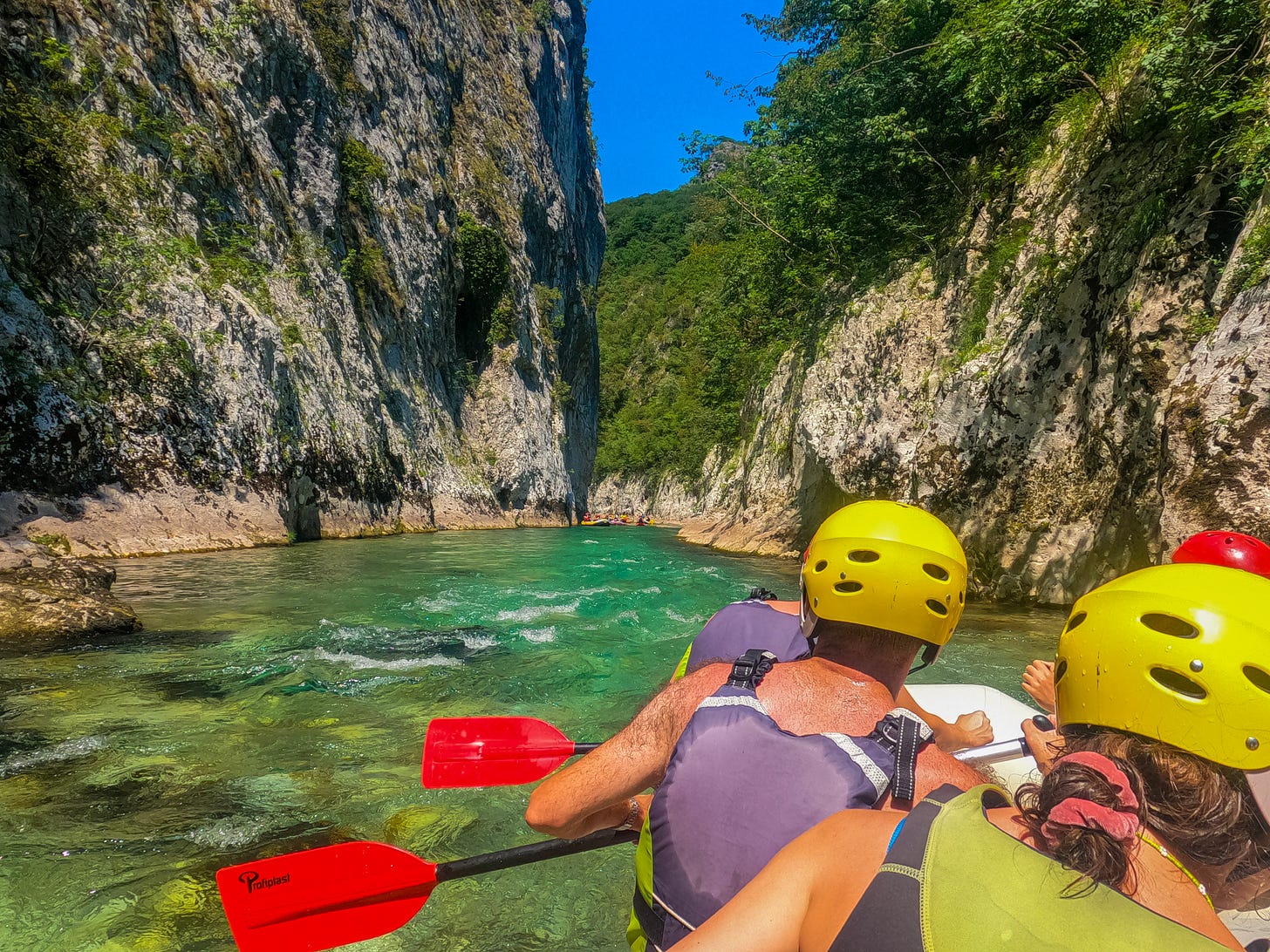
This same desperation exists all over the world. It’s not fair that on Planet Earth, wealth and opportunity are distributed so wildly unevenly.
And, yes, a lot of this unfairness was and is caused by the people and countries who now have most of the world’s wealth — the result of colonialism, soulless multinational corporations, local corruption, and all the rest.
It’s ugly and messy.
Then again, the world has always been ugly and messy.
The question is: how do we make it less that way — more just and more equitable? And is tourism part of the answer?
As travel writers, are we part of the problem — or part of the solution?
This brings us back to Fethiye, Turkey, and that recent sunset walk where the two of us were staring out at the cat and the sunset.
Right now, Fethiye feels like a very touristy place — but one not yet ruined by overtourism.
The locals have mixed feelings about their now-tourist economy and the fact that things have gotten a lot busier in the last ten years.
“Business is definitely booming,” one local man told us. “And there are jobs where there didn’t used to be. In a way, we have pride that we’re a city now, not just a little village. But at the same time, the nature and beaches no longer feel like they’re ours. The wilderness is changing too, always for the worse.”
It made us sad to hear this.
On the other hand, last week, Brent was paging through a 20-year-old guidebook about this area, and it mentioned how the ancient ruins here can be swamped by little local kids pleading to be your “guide,” and then asking for money in return.
We’ve seen this kind of thing in many of the very poor countries we’ve visited, and it’s always heartbreaking. We think: These kids should be in school!
But we’ve also been to those ruins here in Fethiye, and we haven’t seen any kids like this. In fact, at one ruin, several school buses pulled up full of well-dressed kids from the local schools.
Twenty years ago, according to that old guidebook, local kids were begging for pennies. In 2024, they’re in school and being taught their ancient history.
We can’t help but think of that young man we met back in Cambodia — the rice farmer who desperately wants a better life for his daughter.
Is it ethical to be a travel writer?
Like most things, it’s complicated. There are winners and losers in almost everything. And there are definitely good and bad ways to write about tourism — and to be a tourist.
But fewer kids are starving. And it’s hard not to see that as a really good thing.
Want to donate to international anti-poverty efforts? Go here. Or go here.
Brent Hartinger is a screenwriter and author. Check out my new newsletter about my books and movies at BrentHartinger.com.
Michael Jensen is a novelist and editor. For more about Michael, visit him at MichaelJensen.com.



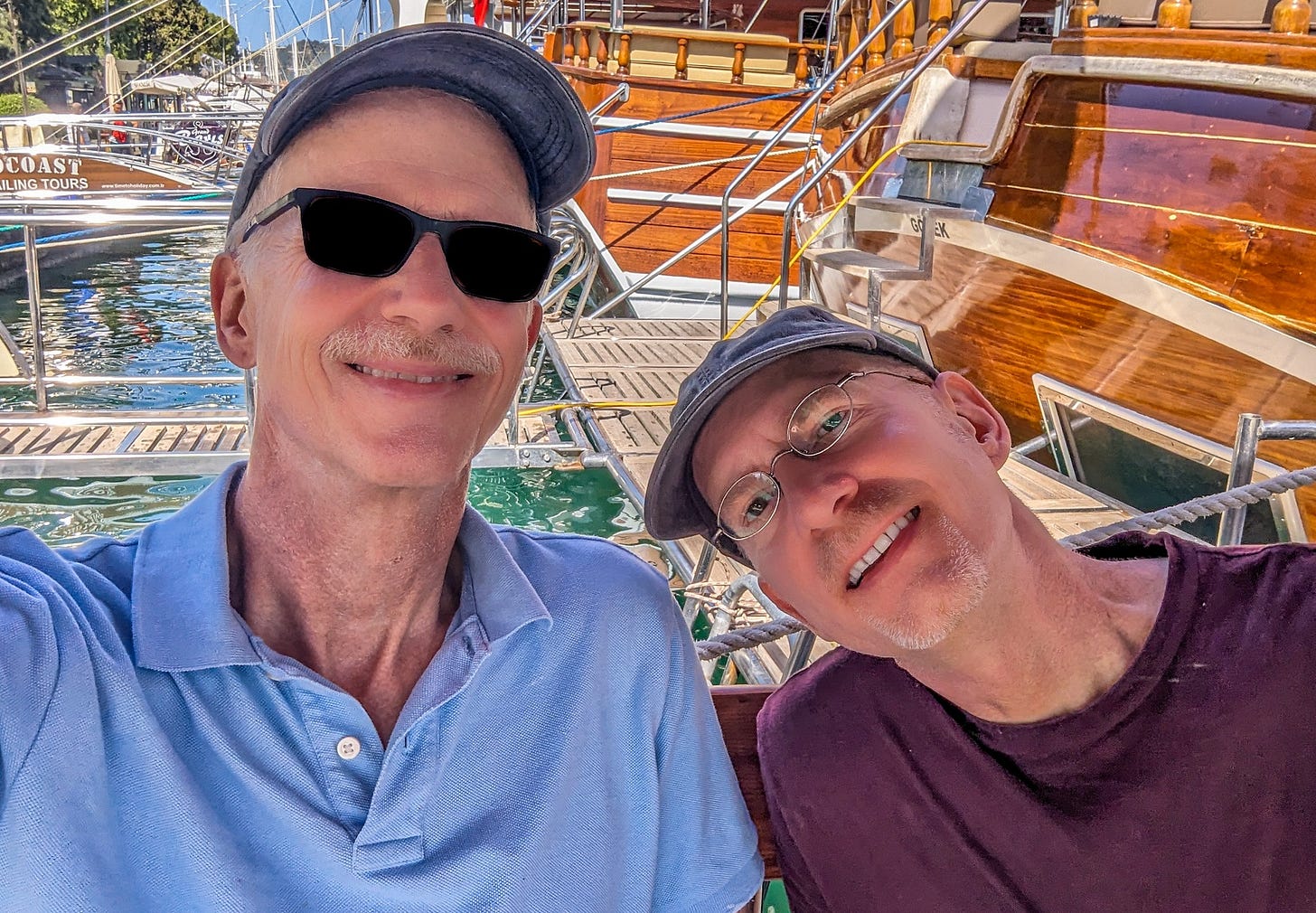
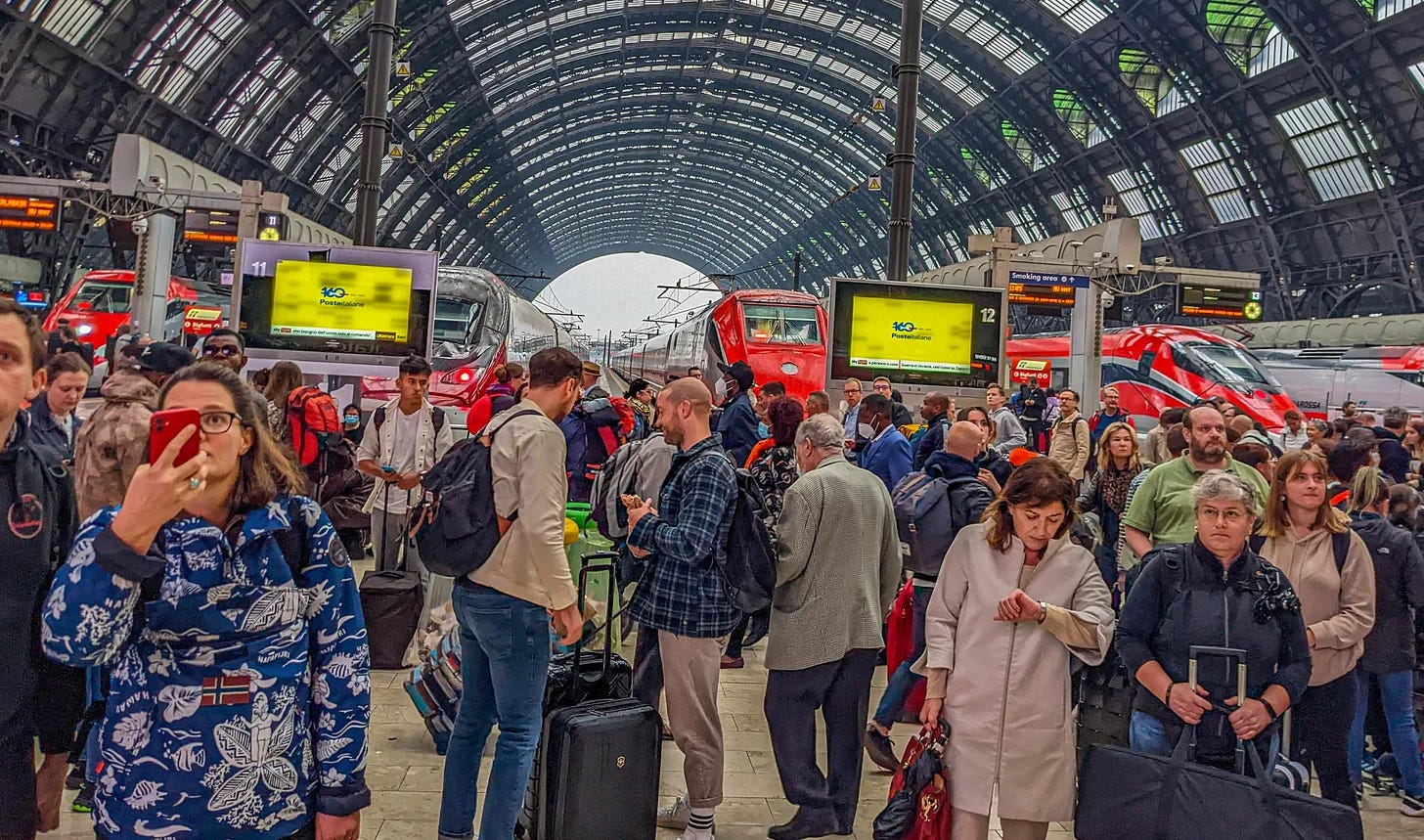
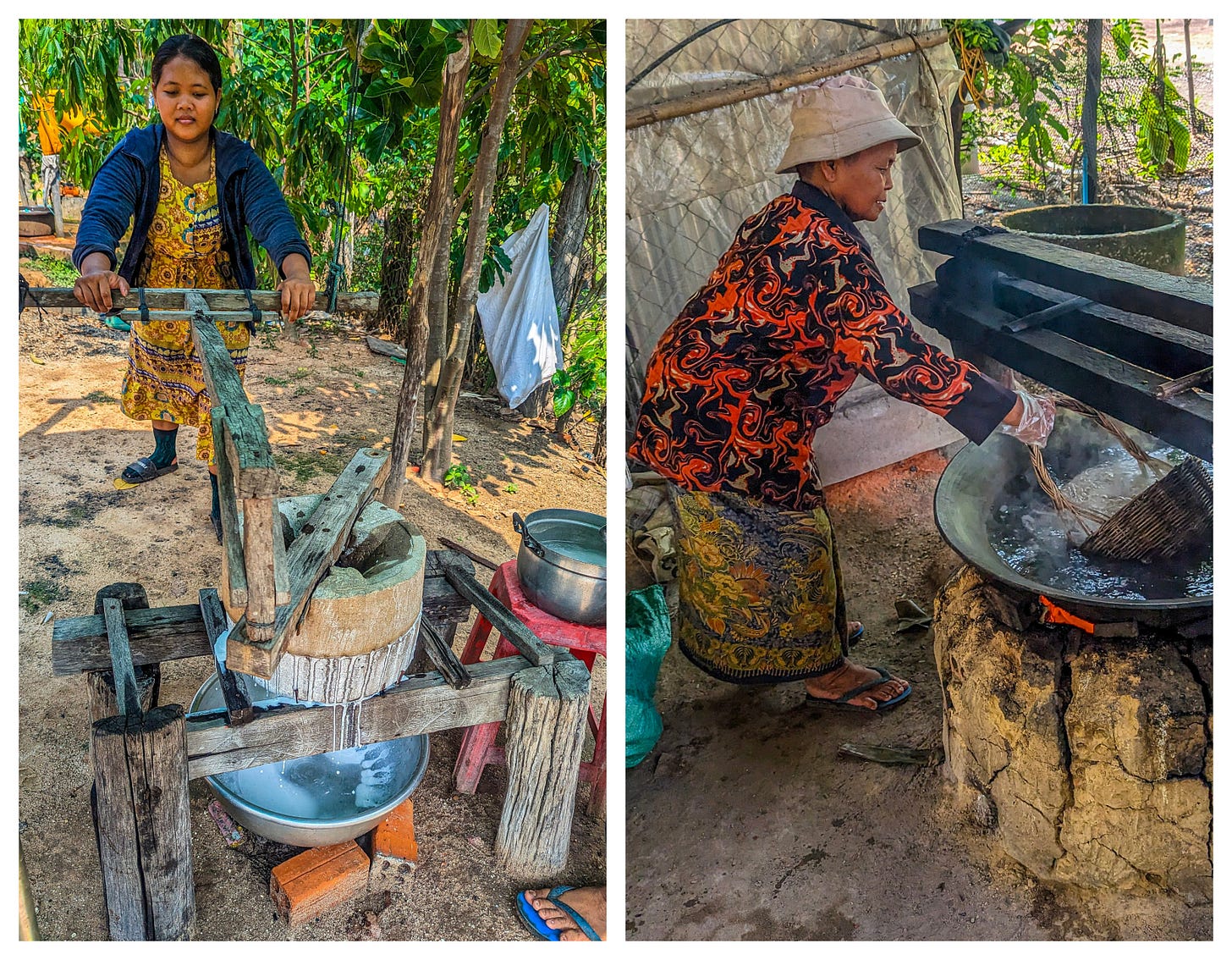
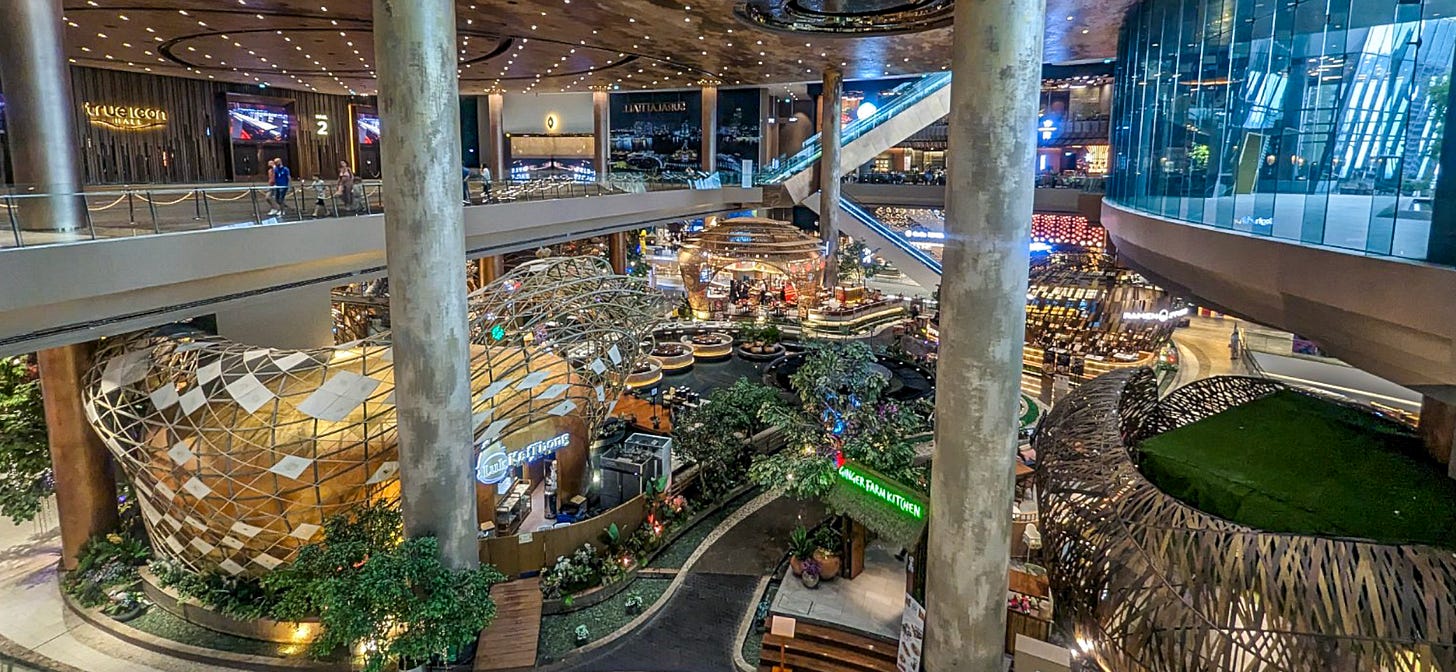
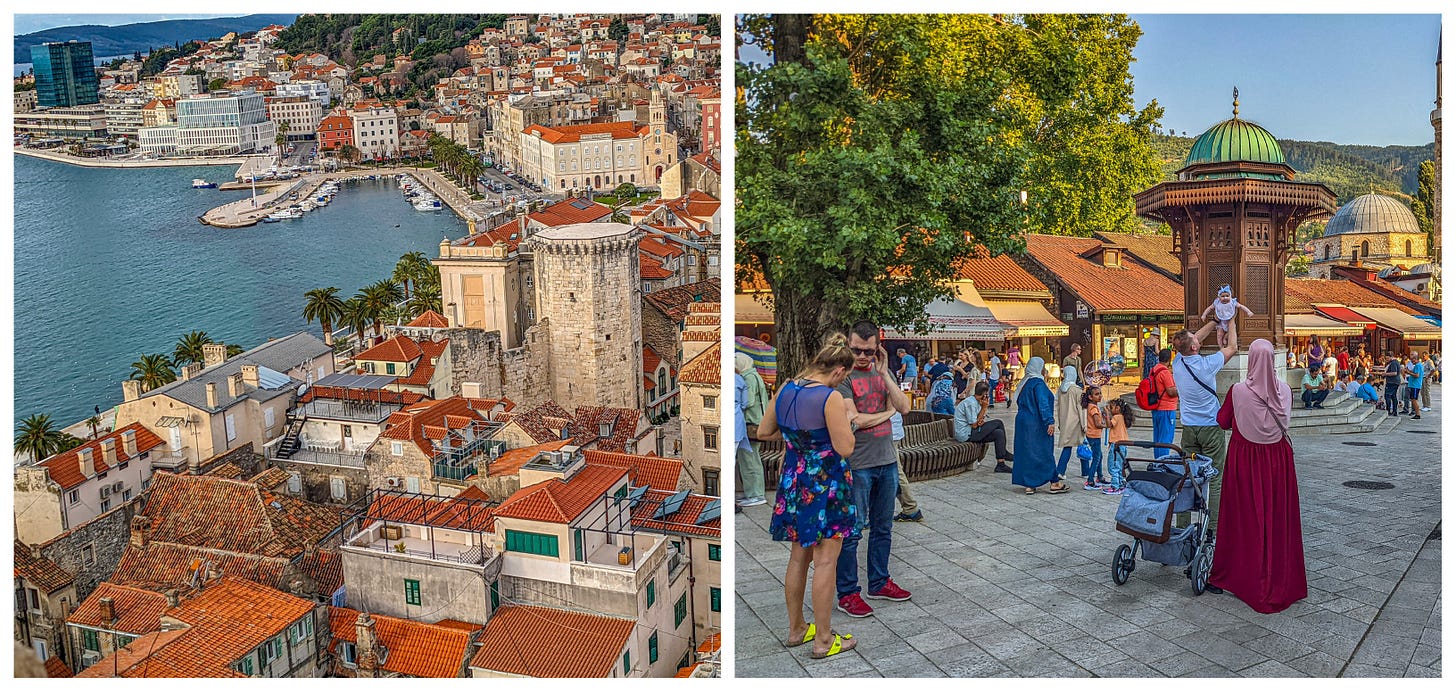
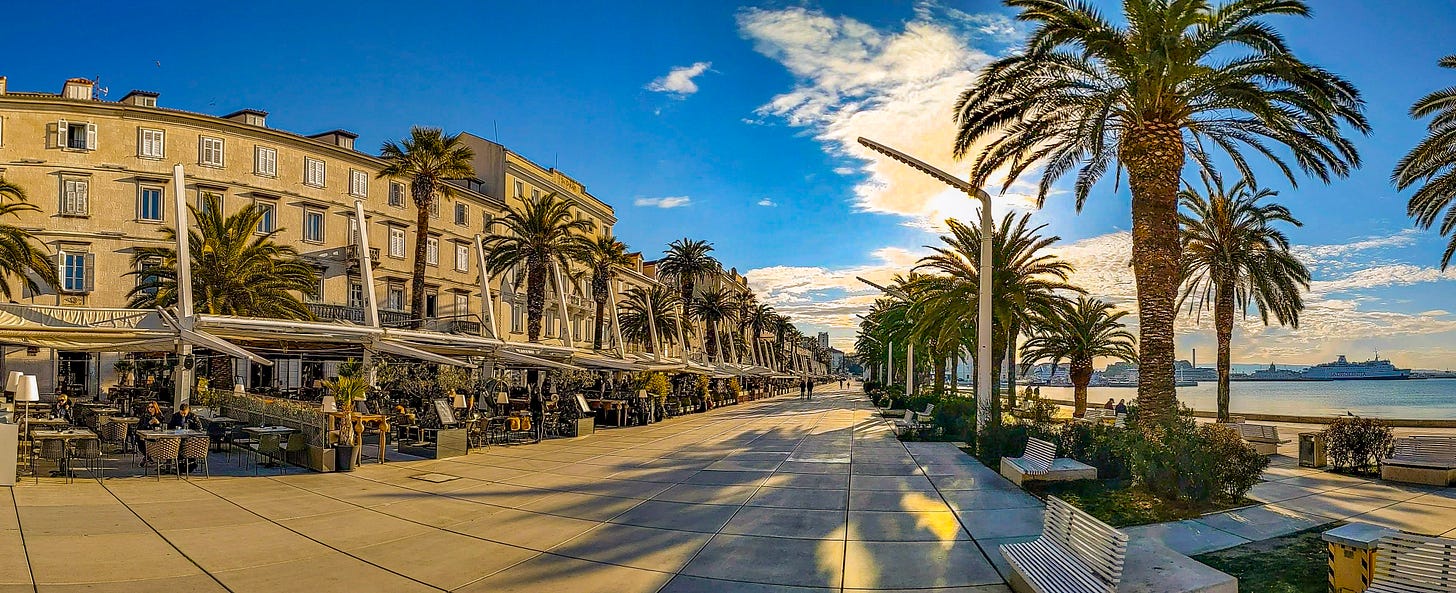
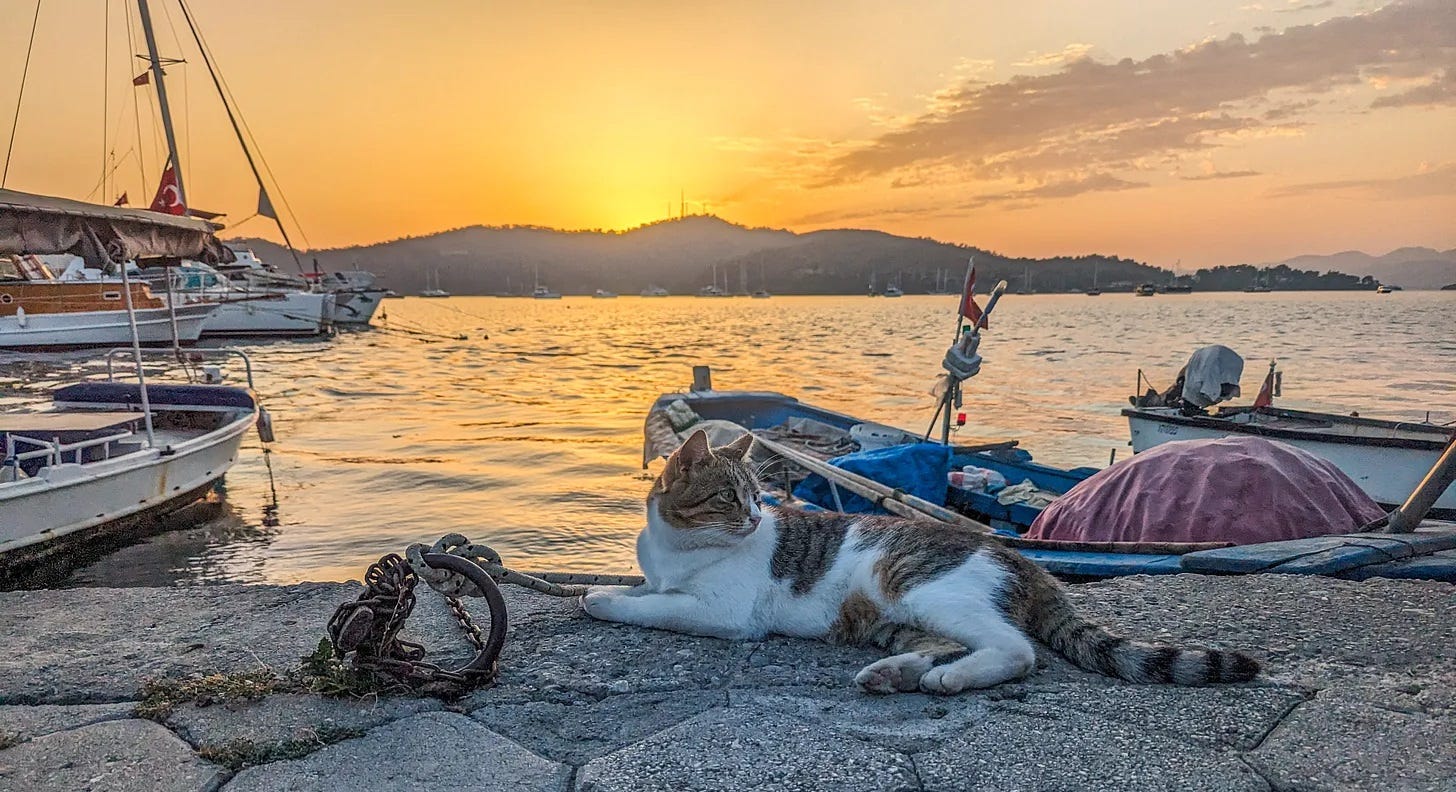
Over tourism is a major issue today and I completely agree . But I don’t think it’s the travel writers or bloggers who have led to this . It’s the massive increase of influencers , most of them not even travellers or know anything about a destination but just want to get followers . And sadly tourists follow them for advise
Brent and Michael, as a travel writer myself, and also a citizen over the years of so many places that could be called 'over-touristy'—San Francisco (before Covid...), Maui, Santa Barbara, Santa Cruz, Mexico Riviera Maya, I hear you. I recall in one of Anthony Bourdain's (RIP) later Japanese segments, Tokyo I think, where he said he was going to one of his fave restaurants but was NOT telling the name b/c he was persona non grata at the last sushi bar he did that about, it makes you wonder: Is there a line to be crossed or uncrossable? I believe writing responsibly, which this post so elegantly does, is the key. Rather than Top 7, or Best of 10 restaurants in ... , you write about places you have most certainly experienced more than that the experience of that old old movie w/ Suzanne Pleshette-If It's Tuesday This Must Be Belgium. I too, before writing about places, have lived there a long time which makes one reflect on, well, everything. I especially noticed how impactful tourism is though mostly on Maui and in Mexico. In the Riv-Maya, year by year locals are more being added to tour-travel work-related jobs. Mostly that's bc, more or less what you mention re the rice noodle man, that the children of those early outliers realize there's a good income in tourism, without selling out. With the Yucatán early on many locals did not even speak Spanish, but that learning curve is now long gone. And the tourists, also early on, embraced volunteer-tourism and made a dent in things like language classes, small libraries, pet rescue, farm to table, etc. That's the type of stuff I like to write about and also the history (as do you) culture of a region. When you're hunkered down some place for a time and you're a writer, you know how the old mind gets working, haha. Anyway, write on! Your posts are so excellent and I look forward to them. Thanks for your thoughtfulness and awareness in an imminent issue we all, as voyagers-writers, must face.